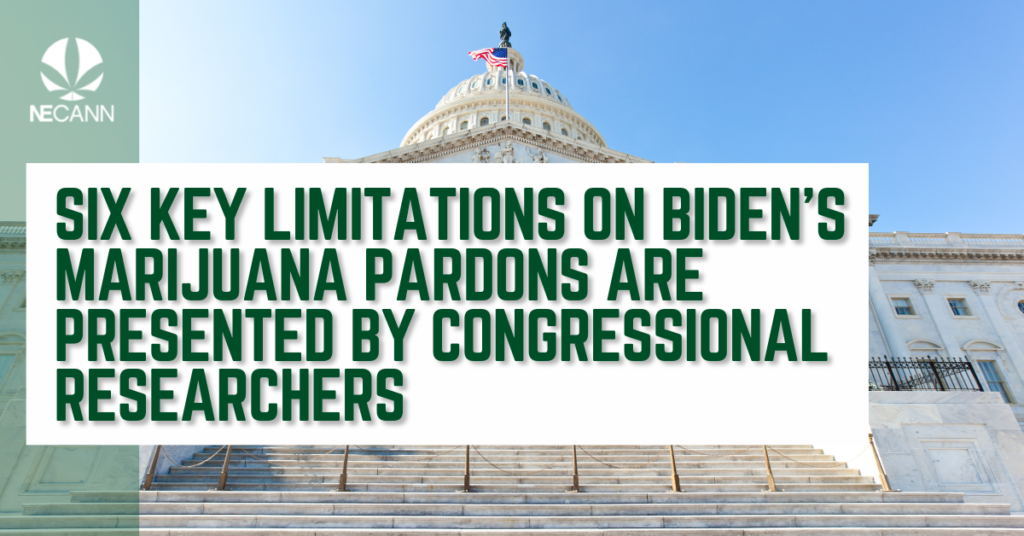A report was issued by Congressional researchers that details the limitations of President Joe Biden’s mass marijuana pardon and offers a broader review of recent state and federal cannabis reform initiatives.
According to an article in Marijuana Moment, the “two key developments in federal and state marijuana regulation,” according to the Congressional Research Service (CRS). These include the president’s clemency action and related cannabis scheduling review, as well as votes on legalization ballot initiatives in five states, two of which were successful.
“While some observers consider President Biden’s grant of clemency to represent a significant change in federal marijuana policy, as a legal matter it did little to alter the growing disparity between federal and state marijuana regulation,” CRS said before explaining its limitations.
About 6,500 people who have broken federal marijuana laws or DC ordinances have been granted pardons by Biden. However, as CRS noted, the relief is subject to at least six significant restrictions.
To begin, most marijuana prosecutions occur at the state level, beyond the scope of a presidential pardon. Biden did encourage governors to take steps to provide relief to those individuals, but congressional researchers noted that there are states where “governors cannot independently grant clemency.”
Second, the report specifies that the pardon only applies to “mere possession of marijuana,” not to “manufacturing,” “distribution,” or “possession with intent to distribute” or any other federal crime involving marijuana. “Federal prosecutions of simple possession of marijuana are relatively uncommon,” CRS noted.
Students for Sensible Drug Policy (SSDP), Last Prisoner Project (LPP), and the Drug Policy Reform Action Committee (DCMJ) protested outside the White House last month to bring attention to this issue, and they demanded that Vice President Biden release the approximately 2,800 people currently incarcerated in the United States for marijuana-related offenses other than simple possession.
The third limitation cited by CRS is the exclusion of non-citizens with cannabis possession records from pardons. This is an issue that has been brought up by various advocacy groups and MPs.
Learn about the latest developments in cannabis with NECANN.




The Congressional Research Service report clearly outlines the key limitations of President Biden’s marijuana pardons, especially how they mainly cover federal simple possession cases and exclude state convictions, non-citizens, and more serious offenses. This highlights the ongoing challenges employers and HR teams face when navigating background checks related to marijuana offenses.